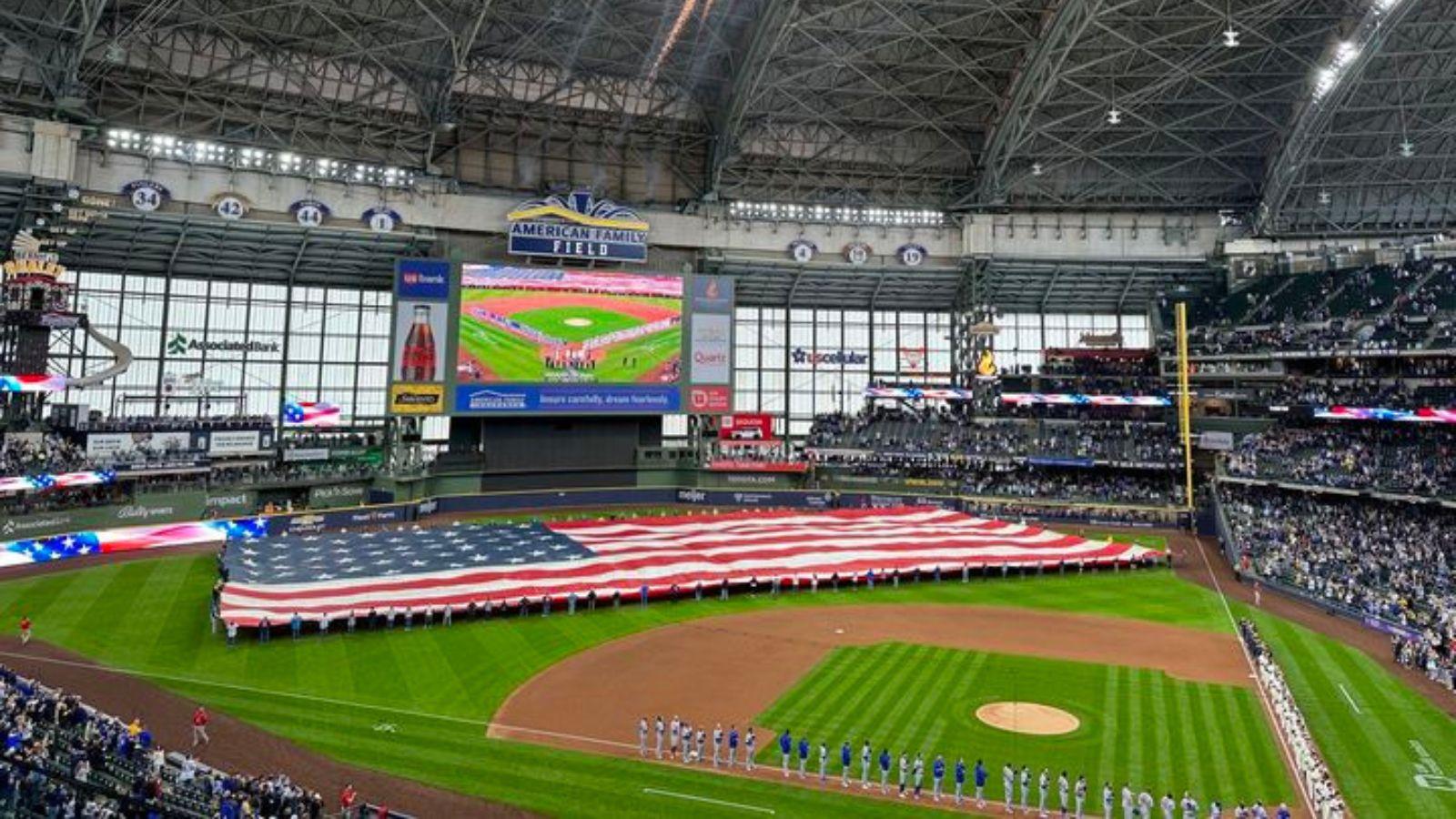

By Peter Cameron, THE BADGER PROJECT
Seeking hundreds of millions of dollars in state funds for stadium renovations, the Milwaukee Brewers spent more on lobbying in the first half of the year than any other organization in Wisconsin, an investigation by The Badger Project has found.
The ballclub reported spending $575,000 from January through June, according to state lobbying records.
The team also reported spending 143.75 hours communicating with legislators.
By comparison, the Wisconsin Realtors Association and Wisconsin Manufacturers & Commerce, regularly the state’s biggest lobbying organizations, spent the second and third highest amounts through June of this year — about $506,000 and $495,000, respectively.
The stadium, which opened in 2001 as Miller Park and known as American Family Field since 2021, needs more than $400 million in updates over the next 20 years, according to two reports, one commissioned by the Brewers and one by the state.
Before it funds a renovation, the state wants a commitment from the Brewers to extend its lease in Milwaukee. The Brewers’ current lease expires in 2030.
The state of Wisconsin has strict lobbying laws, perhaps some of the toughest in the country. Legislators are not allowed to accept anything — not even a cup of coffee — from a lobbyist.
In February, Gov. Tony Evers, a Democrat and vocal Brewers fan, proposed $290 million in state funding for the renovations in exchange for extending the lease to 2043. Republicans balked. When asked in August if the governor had updated his position, his press office referred The Badger Project to the original plan.
Speaker Robin Vos, the top Republican in the state, said in an email to The Badger Project, “We are engaging in discussions, and working to find a consensus that everyone can support. We hope to have a finalized proposal in the near future. We do not want the Brewers to leave, nor do we think they will.”

The Brewers did not respond to messages seeking comment.
Joe Heim, a political science professor emeritus at UW-La Crosse, said he is optimistic the three sides can reach an agreement, particularly because the state has amassed a surplus that totals billions of dollars.
“A stalemate is less likely on this as both sides should want an outcome that keeps the Brewers in the state,” Heim wrote in an email. “They have helped the Packers and the Bucks, so the Brewers’ situation is not unique. There still is plenty of money left for a big state income tax cut and with some of this going into the state rainy day fund.”
After reporting no lobbying in the 2013-2014 session, the Brewers quickly increased their contact with the legislature. The ballclub reported a total of $120,000 in lobbying in the two, 2-year legislative sessions between 2015 and 2018, $222,000 in the 2019-20 session and $435,000 in the 2021-2022 session. That brings the reported cost of the Brewers’ lobbying in the past decade to nearly $1.4 million.
Lobbying is “a tried and true technique for advancing one’s interests,” Heim said.
IT WORKED FOR THE BUCKS
The Milwaukee Bucks reported spending nearly $700,000 on lobbying in the 2015-2016 legislative session, as the team was trying to secure funding for its new arena, the Fiserv Forum. The Bucks eventually got $250 million from the state and Milwaukee County to help build the stadium, which opened in 2018. The team has reported no lobbying spending since 2016.
The Bucks were fortunate. The team negotiated with a Republican-controlled legislature and a GOP governor, Scott Walker.
Evers, a Democrat, has little to no sway over the GOP-controlled legislature, which may be hesitant to give the governor a win he can boast about to constituents.
The Brewers’ stadium is owned and operated by a local government unit, the Southeast Professional Baseball Park District, which represents the counties of Milwaukee, Ozaukee, Racine, Washington, and Waukesha and is managed by a 13-member board. The governor appoints six members; the Milwaukee County executive appoints two; the four other counties’ executives each appoint one, and the mayor of Milwaukee appoints one.
The District is independent of the state and oversees areas like financing, designing, constructing, operations and maintenance of the stadium.
The Badger Project is a nonpartisan, citizen-supported journalism nonprofit in Wisconsin.
This article first appeared on The Badger Project and is republished here under a Creative Commons license.

Jimmie is Civic Media’s Sports Director who also works in digital content, sports, news, and talk programming. Email him at [email protected].
Want More Local News?
Civic Media
Civic Media Inc.
The Civic Media App
Put us in your pocket.